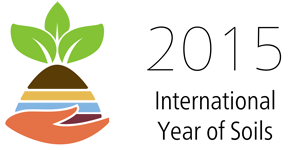Programme
Global Conference on Agricultural Research for Development
28th - 31st March 2010, Montpellier, France
Day 1 (28 March): Reshaping the future of agriculture together
A high-level dialogue, focusing on changes and actions required by global, regional and national institutions for agricultural research to have greater development impact for the poor
Aims:
Translate commitments from recent high level summits, including LAquila, into actions required to strengthen national agricultural research for development systems in the developing world.
Drive reform and reorientation of agricultural research systems and innovation pathways around the world to meet the demand for improved livelihoods of resource-poor farmers.
Outputs from the meeting:
Perspectives from representatives of governments, major intergovernmental agencies, research institutions, civil society, development banks and donor agencies that set the scene for the need to:
- Increase and improve investment, both financial and human capital, in agricultural research and innovation for development
- Improve collaboration and partnership globally, especially North-South and South-South, among nations and Institutions in agricultural research for development
- Enable greater sharing of information, knowledge and skills globally related to agricultural research for development
- Strengthen the inclusion of all stakeholders, especially farmer representatives, in decision making and governance related to agricultural research at National, Regional and Global levels
Provisional agenda – Day 1
| 08:00 - 10:00 | Registration |
| 10:30 - 11:30 | Opening ceremony Opening Ceremony with statements presenting the case for enhanced support to ARD from • Professor Adel El-Beltagy, Chair of the Global Forum on Agricultural Research (GFAR) • Dr Anne-Yvonne Le Dain, Vice-President for Economic Development and Research, Council of the Region Languedoc-Roussillon • Mr Nicolas Trift, Directeur de Cabinet, Minister of Food, Agriculture and Fisheries, France • Mr Robert Zoellick, Video address from the President of the World Bank • Dr Kanayo Nwanze, President of the International Fund for Agricultural Development (IFAD) • Dr Jacques Diouf, Director General of the Food and Agriculture Organization of the United Nations (FAO) |
| 11:30 - 13:15 | Reshaping agricultural research systems to meet the needs of the poor (Moderator: Prof. Ismail Serageldin) Introduction by Moderator, followed by panel dialogue to address major requirements in reshaping agricultural research for development. |
| 13:15 - 14:45 | Lunch |
| 14:45 - 16:15 | Partnership for a better future (Moderator: Prof. Sir Gordon Conway) Introduction by Moderator, followed by panel dialogue on what is required to bring about effective partnership between diverse actors for development impact. |
| 16:15 - 18:00 | Investing for a better future (Moderator: Dr. Margaret Catley-Carlson) Introduction on the need for effective investment in national systems of agricultural research for development, followed by panel dialogue on strategic funding scenarios and modalities to turn commitments into actions. |
| 18:00 - 18:30 | Synthesis and Close of session |
| 18:30 - 19:30 | Official opening of Mediterranean Exhibition |
| 19:30 - 22:00 | Conference Gala Dinner Dr Michael Delafosse, Deputy Mayor for science and technology, City of Montpellier |
Day 2 (29 March): What are the challenges we need to address?
Intended outputs from the day:
-
Region-by-region analysis of the needs, challenges and barriers to agricultural development for the poor that can be met through the generation, access and use of agricultural knowledge;
-
Open discussion and inter-regional dialogue on common themes and needs identified around the world; and
-
Analysis and discussion of the current status of the world’s agricultural research for development systems and what needs to be addressed for these to be more effective and better driven by development demands.
Provisional agenda - Day 2
| 08:30 - 08:40 | Dr David Nabarro - Video Address by the UN Secretary General’s Special Representative on Food Security and Nutrition |
| 08:30 - 09:00 | Dr Monty Jones, Building a shared vision for change |
| 09:00 - 13:00 | Building from regional expressions of demand Region-by-region presentations will focus on highlights emerging from the recent consultations and the issues they have raised. They will identify key priorities for small holders in regional agricultural development and areas where knowledge can make the most difference or where new knowledge is most required |
| 09:00 - 09:15 | Asia & Pacific- Dr Raj Paroda, APAARI |
| 09:15 - 09:30 | Central Asia & Caucasus - Dr Hukmatullo Ahmadov, CACAARI |
| 09:30 - 09:45 | West Asia & North Africa - Dr Ahmed Al-Bakri, AARINENA |
| 09:45 - 10:00 | Latin America/Caribbean - Dr Mario Allegri, FORAGRO |
| 10:00 - 10:15 | North America - Dr Josette Lewis, USAID; Dr Ian MacGillivray, NAFARD |
| 10:15 - 10:45 | Coffee break |
| 10:45 - 11:00 | Africa - Dr Dennis Kyetere, FARA |
| 11:00 - 11:15 | Europe - Dr George Rothschild, EFARD |
| 11:15 - 11:45 | Plenary question and answer session |
| 11:45 - 13:00 |
Marketplace discussion, by region:
|
| 13:00 - 14:30 | Lunch |
| 14:30 - 16:00 | Where can collective efforts in international agricultural research make most difference in development? Plenary presentation, CGIAR Consortium Outline of the CGIAR Consortium and analysis by the Consortium of the specific regions/eco-regions and agricultural themes in which international research could contribute most in support of national development goals and actions. Plenary feedback on themes/regions identified for collective action, with input from participants on any further important global themes. |
| 16:00 - 16:30 | Coffee break |
| 16:30 - 18:00 | Transforming agricultural research for development , Dr Uma Lele (Lead Author) Plenary address by GCARD Global Author Team (Dr Uma Lele, Professor Jules Pretty, Dr Eugene Terry, Dr Edoardo Trigo) Presentation of the summary paper by the GCARD global author team, synthesizing systematic needs in agricultural research for development. Plenary discussion of the proposed roadmap for reforming agricultural research for development systems. |
| 18:30 - 20.00 |
Awards ceremonies:
|
| 20:00 - 22:00 | Networking reception with canapés |
Day 3 (30 March): What do we need to do better? Strengthening the impact of agricultural research in development
Intended outputs from the day:
- Presentation and feedback discussion of the proposed Strategic Results; Framework and proposed collective actions identified by the CGIAR as a basis for increasing development outcomes at scale; and
- Discussion of key strategic changes required in the functions and roles of agricultural research systems at national and international levels for these to contribute more effectively towards development impact
Provisional agenda – Day 3
Morning Session |
Better targeting collective actions – research themes identified for international agricultural research The CGIAR has analysed where it feels its international research efforts could best be focused to meet tomorrow’s development needs. The collective programmes articulated by the CGIAR will be presented and responses invited as to how these fit with the views, focus, capacity, and investment needs of national AR4D stakeholders. |
| 08:30 - 09:00 | Introduction to the large-scale collective-action programmes proposed by the CGIAR and their relationship to national and regional development agendas and other required investments Plenary presentation by CGIAR Consortium |
| 09:00 - 12:30 | Parallel discussion sessions (including 10:30-11:00 tea/coffee break) Eight parallel sessions mapping proposed programmatic areas to regional development demands and the roles and accountabilities expected of the CGIAR and diverse stakeholders in implementation of collective actions (parallel sessions discussing each main programme) |
| Discussion sessions around each proposed theme will enable other stakeholders to: • Respond on the extent to which they align with the priorities identified and where there are key areas beyond the remit or analysis of the CGIAR; • Map the kinds of stakeholders and actions required to align and deliver the associated investments of funds and resources required to impact for the poor on the scales proposed; and • Identify the forms of roles expected from the international system in supporting the transformation of research outputs (international public goods) into national research and development outcomes Portfolio of 8 Thematic areas: 1. Agricultural systems for the poor and vulnerable, Dr Maarten van Ginkel (ICARDA) 2. Enabling agricultural incomes for the poor, Dr Charles Crissman (CIP) 3. Optimizing productivity of global food security crops, Dr Marianne Banziger (CIMMYT) 4. Agriculture, nutrition and health, Dr Marie Ruel (IFPRI) 5. Water, soils and ecosystems, Dr David Molden (IWMI) 6. Forests and trees, Dr Andrew Taber (CIFOR) 7. Climate change and agriculture, Dr Andrew Jarvis (CIAT) 8. Agricultural biodiversity, Dr Kwesi Atta-Krah (Bioversity International) |
|
| 12:30 - 14.00 | Lunch |
|
|
What needs to change for agricultural research and extension systems to be more effective agents of development? Parallel sessions will present and address systematic/strategic reform needs, action plan and framework components, generated from the 2009 GCARD consultations. Outputs from these sessions, together with outputs from the morning, will be synthesized into the roadmap in the final day. |
| 14.00 - 18.00 | Parallel sessions: discussion of key strategic needs across systems • Improving partnerships • Addressing gender for inclusive development • Capacity development • Role of the fast-growing economies as new providers • Knowledge, information and advice in agri-food systems; opportunities and Actions • Thinking forward: better predicting and addressing future needs • Better benefiting the poor through public-private partnerships for innovation and action • Managing risks to farmers in a time of change These sessions (including tea/coffee break 15.30-16.00), which are intended to stimulate active discussion of strategic actions required among all, build from priorities identified across regions and draw from pre-conference meetings, processes or analyses of critical issues that will set the scene for discussion by Conference delegates. They will operate in a variety of formats. |
| 18.30 - 20.00 | Open science (Pasteur room) Presentations about the potential that agricultural and wider science can offer for development impact. |
| 20:00 - 22:00 | Reception with canapés and networking |
Day 4 (31 March): Development of a roadmap for collective action
Intended outputs from the day:
- Plan developed for specific measures and actions required over the next few years to enable research to deliver more effective impact for the poor through strengthening and transforming agricultural research for development:
- Cross-cutting discussion to refine the outcomes of the previous day’s sessions;
- Refining and populating pathways that will transform AR4D over the next 6 years, with desired collective actions identified through the working groups concerned; and
- Opportunity for specific commitment by individuals and institutions to new agendas, actions and transformative codes of conduct between diverse AR4D partners.
Provisional agenda – Day 4
| 08:30 - 08:40 | Mr Kofi Annan – Video Address by the Former UN Secretary General and Chair of the Alliance for a Green Revolution in Africa (AGRA) |
| 08:40 - 10:30 | Report to plenary by rapporteurs on the specific actions developed through the parallel sessions on Day 3 |
| 10:30 - 11:00 | Coffee/tea break |
| 11:00 - 12:00 | Refinement and key elements of the RoadMAP (Montpellier Action Plan) to improve the value of agricultural research in development at national, regional and international levels Session led by Uma Lele The RoadMAP derived from the Conference deliberations will set out pathways for reform and reorientation of agricultural research systems and innovation pathways around the world, against which all constituencies brought together in GFAR can review and assess our collective progress and change through successive GCARD meetings. |
| 12:00 - 13:00 | Closing remarks including handover to the incoming GFAR Chair • Dr Carlos Perez Castillo, CGIAR Consortium • Representative of the Government of France • Dr Kathy Sierra, World Bank • Prof Adel El-Beltagy, outgoing GFAR Chair • Dr Monty Jones, incoming GFAR Chair |
| 13:00 - 14:30 | Lunch and departure |



